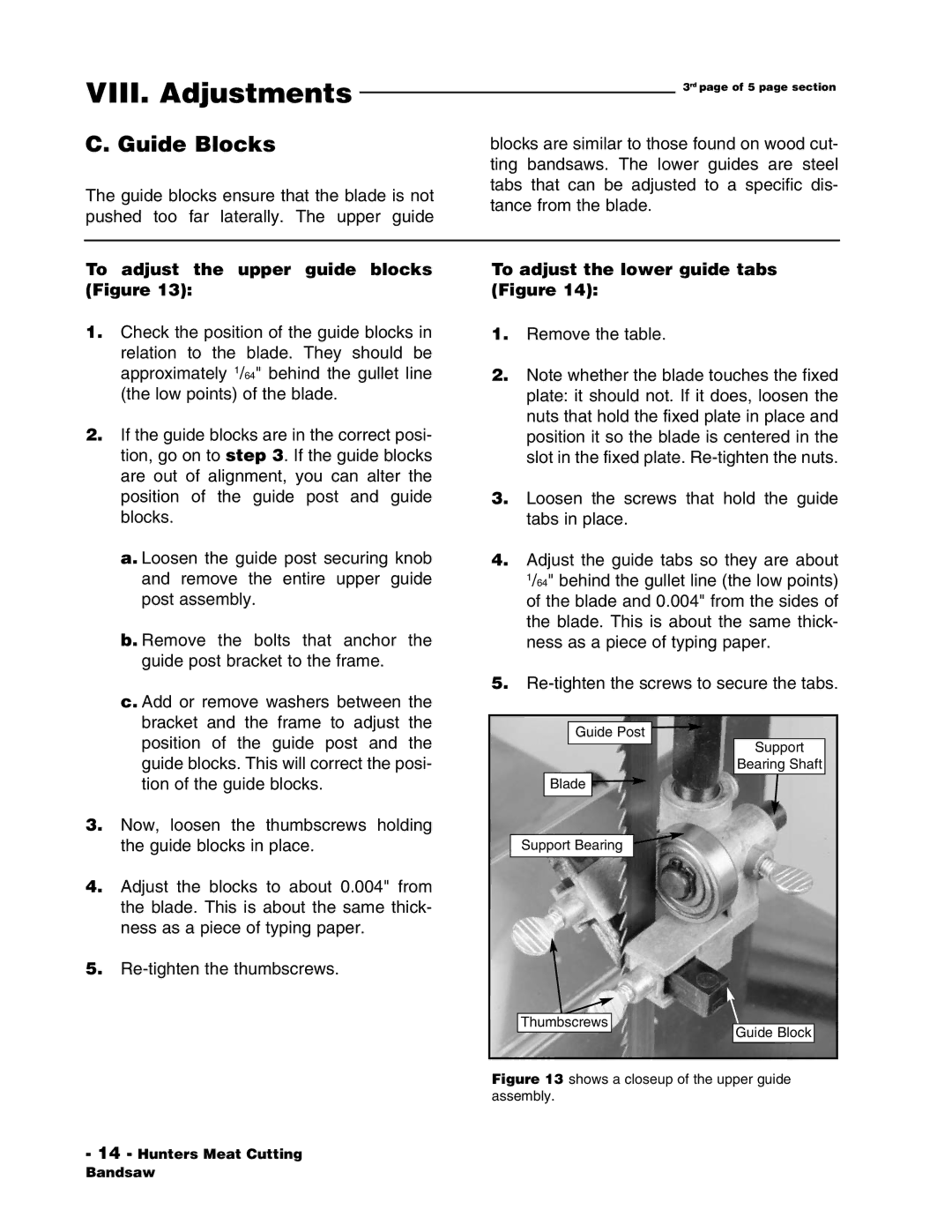
VIII. Adjustments
C. Guide Blocks
The guide blocks ensure that the blade is not pushed too far laterally. The upper guide
To adjust the upper guide blocks (Figure 13):
1.Check the position of the guide blocks in relation to the blade. They should be approximately 1/64" behind the gullet line (the low points) of the blade.
2.If the guide blocks are in the correct posi- tion, go on to step 3. If the guide blocks are out of alignment, you can alter the position of the guide post and guide blocks.
a.Loosen the guide post securing knob and remove the entire upper guide post assembly.
b.Remove the bolts that anchor the guide post bracket to the frame.
c.Add or remove washers between the bracket and the frame to adjust the position of the guide post and the guide blocks. This will correct the posi- tion of the guide blocks.
3.Now, loosen the thumbscrews holding the guide blocks in place.
4.Adjust the blocks to about 0.004" from the blade. This is about the same thick- ness as a piece of typing paper.
5.
-14 - Hunters Meat Cutting Bandsaw
3rd page of 5 page section
blocks are similar to those found on wood cut- ting bandsaws. The lower guides are steel tabs that can be adjusted to a specific dis- tance from the blade.
To adjust the lower guide tabs (Figure 14):
1.Remove the table.
2.Note whether the blade touches the fixed plate: it should not. If it does, loosen the nuts that hold the fixed plate in place and position it so the blade is centered in the slot in the fixed plate.
3.Loosen the screws that hold the guide tabs in place.
4.Adjust the guide tabs so they are about 1/64" behind the gullet line (the low points) of the blade and 0.004" from the sides of the blade. This is about the same thick- ness as a piece of typing paper.
5.
Guide Post |
Support |
Bearing Shaft |
Blade |
Support Bearing |
Thumbscrews |
Guide Block |
